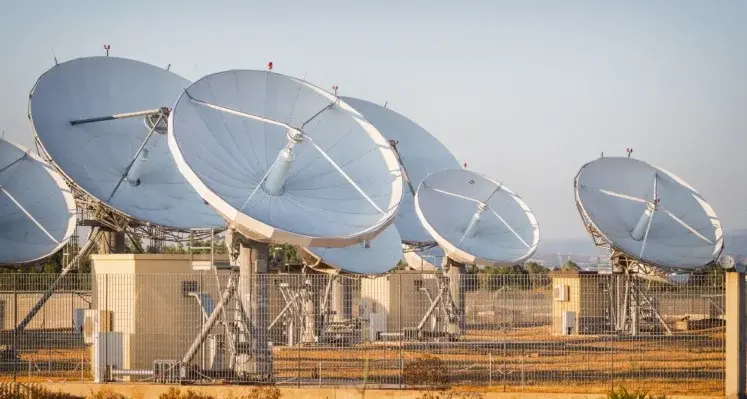The Namibia Spaceport project has received approval from Eos Capital, managers of the Namibia Infrastructure Development and Investment Fund (NIDIF)
Spearheaded by Q-KON Namibia, this innovative initiative signifies a major step forward for the country.
The project, known as the Namibia Spaceport, while not a traditional spaceport, will serve as a crucial hub for satellite communication networks, providing ground infrastructure and advanced services to global satellite operators. It will offer the following select services:
1) Ground Gateway Terminal Hosting: This involves providing essential infrastructure for hosting Low Earth Orbit (LEO) constellation Ground Gateway Terminals. It includes land for antenna farms, civil works, fiber connectivity, power supply, facilities monitoring, equipment hosting, infrastructure services, and on-demand first-line support services.
2) Earth Observation Downlink Services: The project will facilitate the downloading of crucial data and images from orbiting satellites, enhancing earth observation capabilities and scientific research. Additionally, it will provide access to high-resolution satellite images in schools and universities, serving as a valuable educational resource. Students can utilise these images to analyze changes in land use, monitor deforestation, or study the impacts of climate change on various ecosystems.
3) Tracking, Telemetry, and Control (TT&C): The Spaceport will play a vital role in the African network of TT&C stations. These stations monitor and control satellites orbiting over the continent.
Fostering Namibian Innovation
“We anticipate announcing the next steps in the coming months,” remarked Dr Dawie de Wet, CEO of Q-KON.
Namibia’s minister of information and communications technology, Emma Theofelus, stated, "The Namibia Spaceport represents a monumental stride towards harnessing the vast potential of space technology for the growth of Namibia and Africa’s communication capabilities." She also noted that this project is a key component of Namibia’s National Space Science and Technology Policy, which was launched in June 2021.
“The project shows Namibia’s commitment to space exploration, innovation, and sustainable development. With a strategic focus on collaboration, capacity building, and technological advancement, the Namibia Spaceport will make our country a worthy player in the African space arena,” Theofelus explained.
Frederico Van Wyk, chief investment officer of Eos Capital, emphasised that approving the Namibia Spaceport project highlights their dedication to enhancing digital inclusion and connectivity throughout the country, promoting economic growth and innovation in Namibia. This investment aligns with NIDIF’s broader strategy to develop the Information and Communication Technology (ICT) sector in the nation.
“This landmark initiative aligns with Eos Capital’s mission to facilitate strategic investments that propel Namibia into the future and earn positive returns to investors,” Van Wyk added.






















